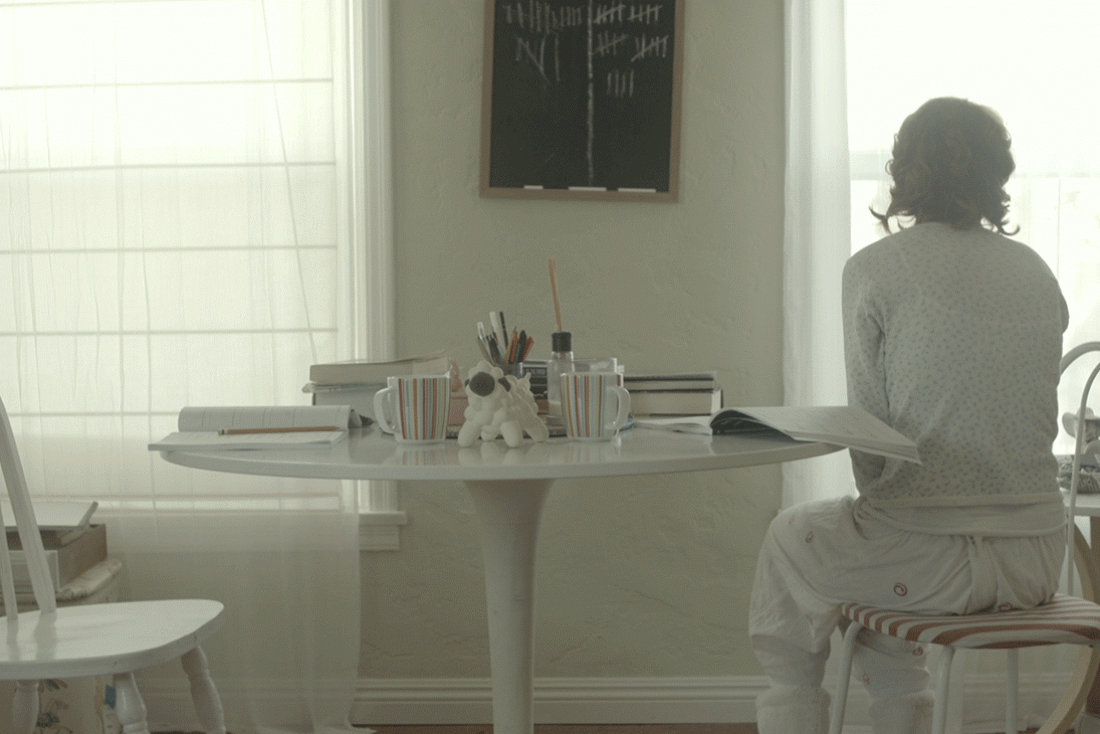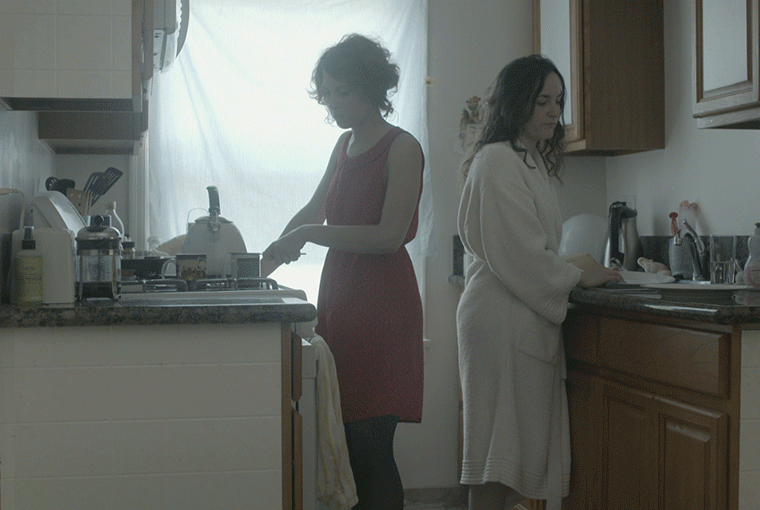
A still from Mae and Ash

A still from Mae and Ash
Shuchi Talati, a directing alumna from the American Film Institute, received the Bridges-Larson Production award and the Women in Film endowment for her exceptional talent in the field. Prior to the school, she worked in various commercials and feature films in Mumbai. She was the Creative Head and Machinima director for the groundbreaking start-up Indusgeeks where she directed over twenty commercials and corporate videos for clients like the Brand Union, RTA Dubai and Child Rights and You.
Shuchi's tenth short film, Mae and Ash, explores how a young couple's open relationship is tested when the 'other' woman stays for breakfast. Mae and Ash is a result of her own private feelings and insecurities she once faced in her life, and films it beautifully to show how often people end up lying to themselves while being in perfectly 'healthy' relationships. She has produced and written many short films. A few of her other works are The Jigsaw man, The Delivery, Rooted in Hope.
How did your relationship with the lens begin?
I guess it started because of my love for stories. As a kid I read a lot! I was shy and an introvert, but I guess because of the small town I grew up in, there was never a thought of turning that into some kind of a career. So for the longest time I was following the path of becoming a doctor like my dad until grade eleven when I decided to go study literature, and somewhere along the way I discovered films.
I realised a film could be so quiet and yet say so much and leave me with so much to think about, something I had never experienced outside the books and that's precisely where my relationship with the lens began.

How has your film making journey been so far?
My filmmaking journey has been all over the place. I've been in three big film cities of the world, working on something quite different in each city.
I started out making Machinimas in Bombay, then spent several years in an LA Film School and started working on narrative films, and now I'm in New York writing a couple of personal projects, while also working as a writer / producer for non-fiction TV and documentaries. But really, I've been story telling all along. Despite different formats -short/long, fiction/non-fiction, web/TV/features - the work has had much in common.
And the other common thread has been my own work, which quietly continues alongside like a stream. Sometimes, it's a big fast-flowing stream and at other times it's barely a trickle. But it's always present.
What about filmmaking intrigues you the most?
I often ask myself the same question - what do I enjoy about filmmaking? Because much of the process is not 'fun'.
Beginning to write a new project is daunting, fundraising for it takes so much time and is pretty unpleasant, and shooting is so stressful.
You have a limited number of days and resources and it seems like everything conspires to go wrong - it rains when you need a sunny day, actors fall sick, equipments break.
The moments of respite are few: when you feel the script is almost done, or an actor gives you an amazing take and you look at your DP and nod—yes, we captured something real, something good. And yet, I wonder what keeps us working. I think filmmaking gives me something much deeper that fun. Telling stories and making things is part of my identity. So it feels inevitable to work away at it, even when a particular task at hand might not be all that enjoyable.
A word of advice to young film enthusiasts on the art of short film making?
I would tell filmmakers to watch a lot of short films. With resources like Short of the Week, Vimeo Staff Picks, it's easy to find some great work around the world. Short films are their own art form.
Many filmmakers, and I include myself in this group, are trying to make the short version of a feature length film. This makes for long shorts, but I think some of the most successful short films are structured like jokes—a clear setup with a punchline at the end. Usually there is one reveal that makes you see everything in a fresh light.
My other bit of advice is more general to all young filmmakers: be tenacious. Filmmaking is hard and unpredictable but if you stick around long enough, something good definitely does happen.
It is one of those careers where it's impossible to follow anyone else's trajectory. I sometimes say making it in filmmaking is like making it in dating. You can't emulate or replicate anything that's gone before. You might meet him/her on the train, or on OKCupid, or at the dentist's. Any way might work. No way is certain. But all the ways aren't equal.
What inspired you to write Mae and Ash?
So several years ago when I was living in Bombay and had a boyfriend, I happened to experience an instance of his ex girlfriend visiting him and staying with him for a week. During this time I found myself showing various signs of unusual behaviour and insecurity, and the need to show him how cool I was.
Years passed by but how I reacted to this situation stayed with me and I decided to use this in Mae and Ash, which is essentially a story about a young couple, who seems to be perfectly healthy and in love, who stay together and have built a routine together.
They have an interesting aspect to their relationship where once in a while they plan a night where they each go for a date with other people, but stick to the rule of not meeting each other's dates. When the rule is broken, it turns into a place of unusual behaviour, tension, insecurity, and the realisation of not being true to oneself for the sake of the other.
What projects are you working on next?
I'm finishing re-writes on a feature script that has been in the works for a few years. It's a coming of age story about a teenage girl in a Panchgani boarding school, and the tumult of her fist love, her first sexual experiences.
I'm also writing an accompanying short film from the girl's mother's point of view; and the complex mix of envy and pride she feels for her daughter.